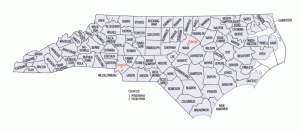North Carolina’s Administrative Office of the Courts has issued its required annual report on North Carolina’s Business Court for 2018 (the Report). A copy can be found here.

“As of December 31, 2018, there were five active Business Court judges maintaining chambers in Charlotte, Greensboro, Raleigh and Winston-Salem: Louis A. Bledsoe, III, Chief Business Court Judge (Mecklenburg County Courthouse), Gregory P. McGuire (Wake County Courthouse), Michael L. Robinson (Wake Forest University School of Law), Adam M. Conrad (Mecklenburg County Courthouse), and James L. Gale, Senior Business Court Judge (Elon University School of Law). Chief Justice Mark Martin designated Judge Gale as Senior Business Court Judge and Judge Bledsoe as Chief Business Court Judge, effective July 1, 2018.” In 2019, North Carolina’s General Assembly approved the Governor’s reappointment of Judge Bledsoe.

[Note: Judges Gale and Bledsoe have also served as Business Court Representatives to the ABA Section of Business Law, and Judge Gale currently serves as Co-Chair of the Section’s Business Courts Subcommittee.]
The Report includes an overview of the Business Court’s mandatory jurisdiction, and the number of pending cases based on that mandatory jurisdiction. Under North Carolina General Rule 2.1, the state’s Chief Justice also has the discretion to assign certain complex business cases to the Business Court that do not otherwise fall within the court’s mandatory jurisdiction, i.e., cases that do not otherwise fall within specifically defined case types that meet required minimum amounts in controversy. The number of pending discretionary cases, however, is only a small fraction of the total caseload when compared to pending mandatory jurisdiction cases.
The Report includes statistics for new, closed, and pending cases, and breaks these down further by judge and region. Some of the statistics include figures for 2016 and 2017, as well as 2018. The Report also provides numbers for the average age of pending cases, and disposition times. Again, a copy of the Report can be found here.
As an outsider to practice in North Carolina’s Business Court, the strong impression is that this Court’s docket is dominated by complex cases, whether mandatory or discretionary. It is also clear this is a business court that emphasizes judicial opinion writing.
